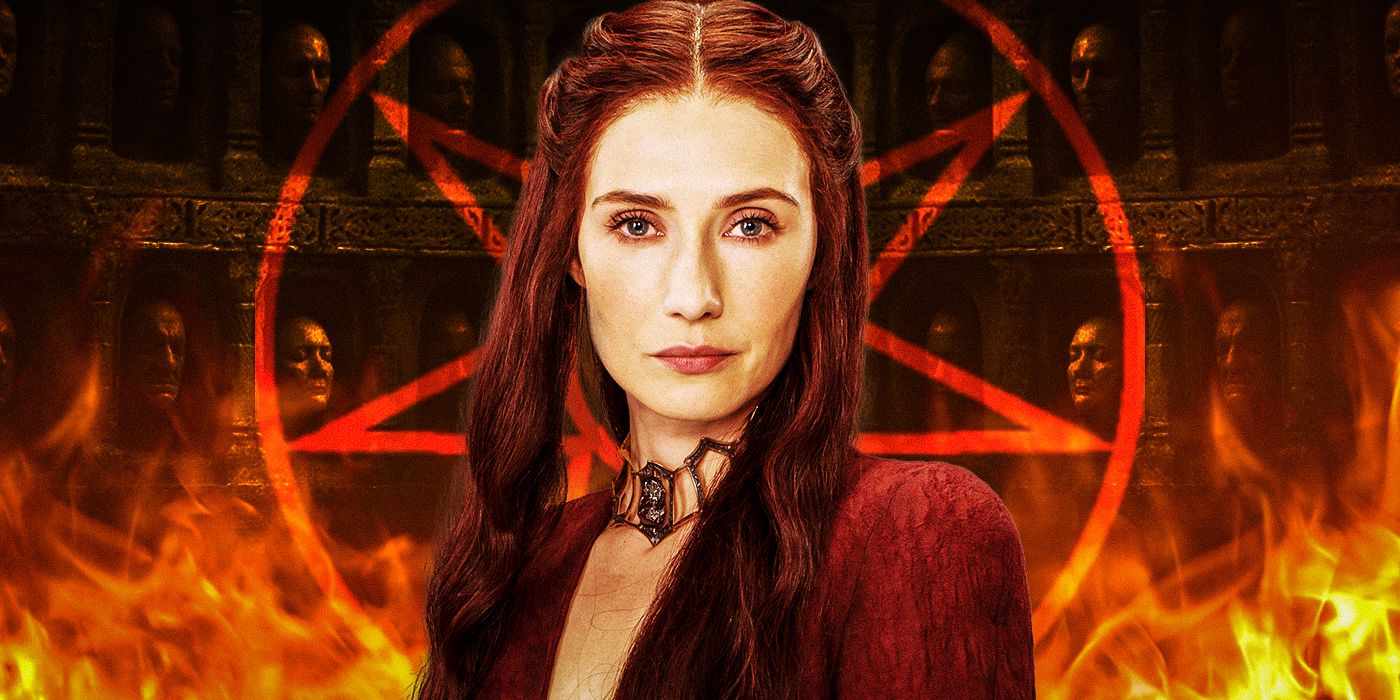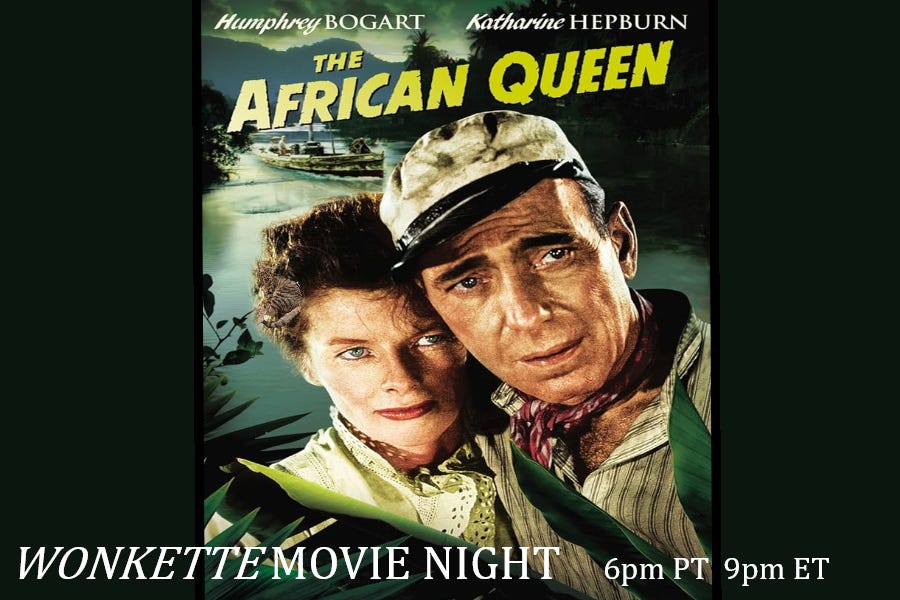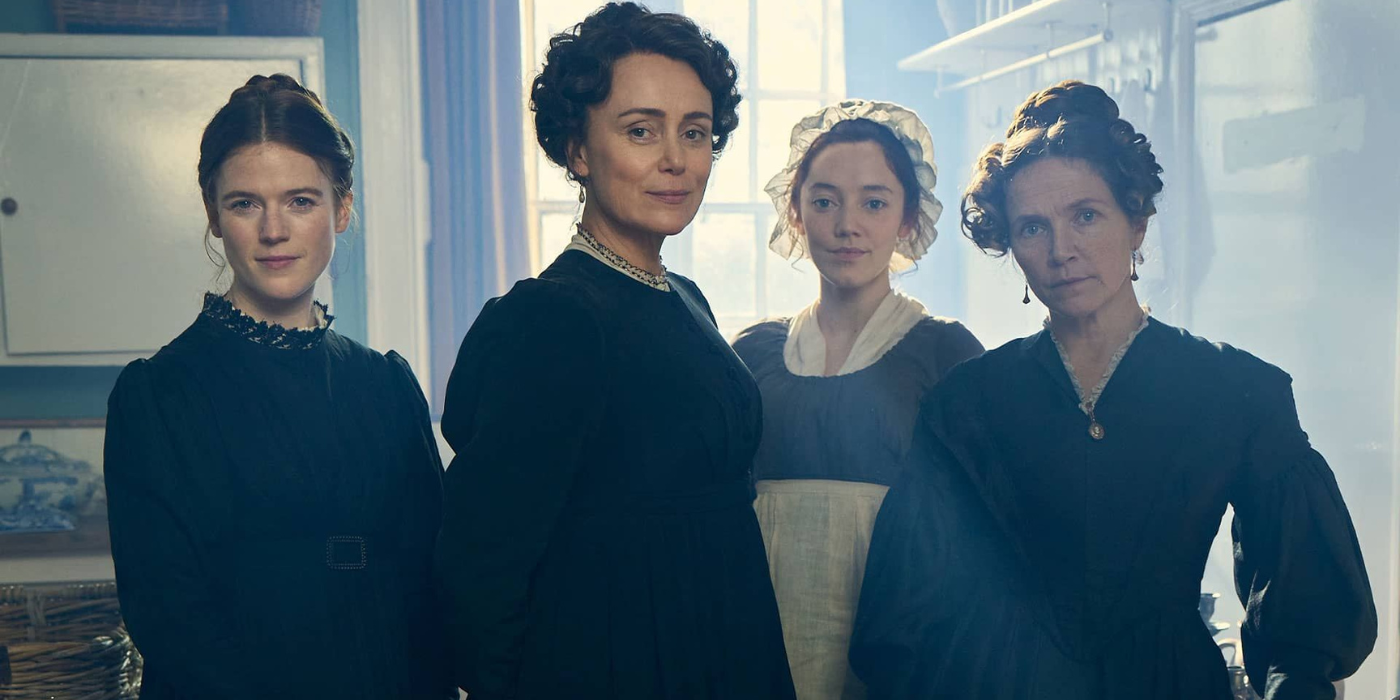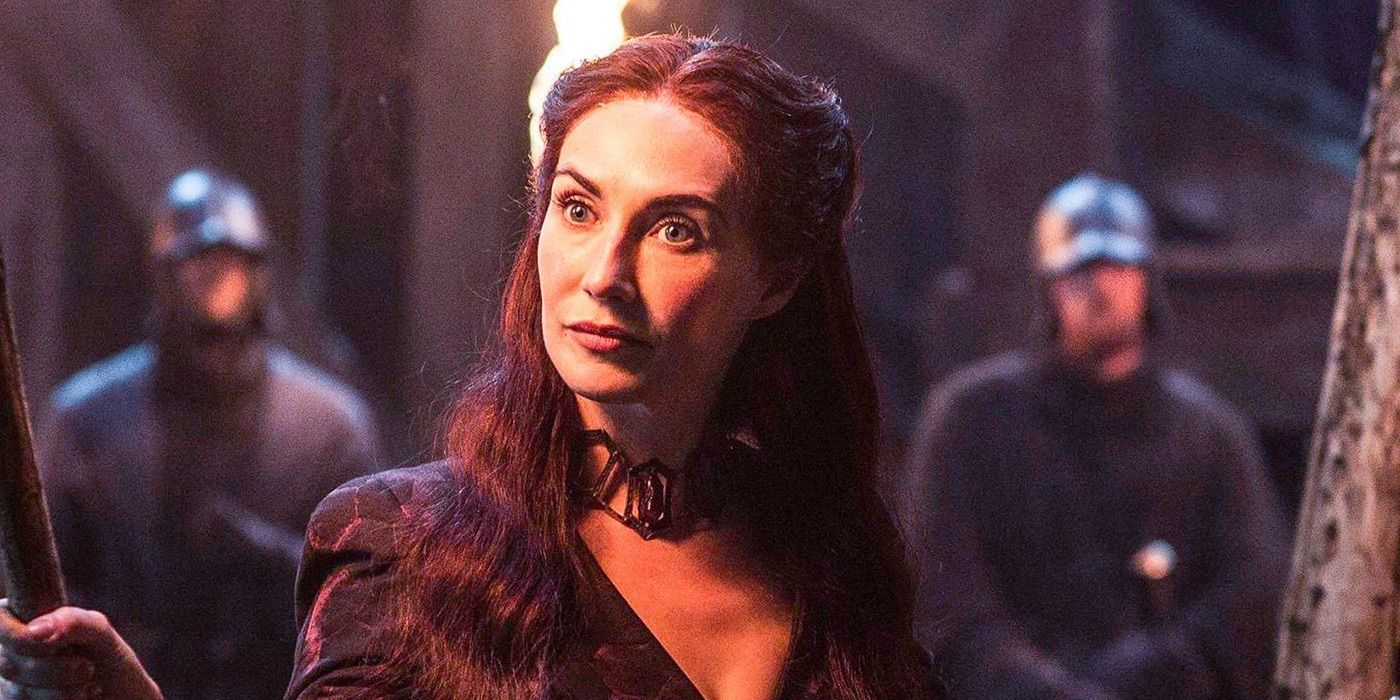The Big Picture
- Melisandre’s actions were guided by her faith and devotion, making her motivations arguably good despite her controversial actions.
- Melisandre never used her faith for personal gain, unlike other characters who sought power or revenge through their religious beliefs.
- Melisandre played a pivotal role in saving Westeros from the darkness, bringing critical characters together and fulfilling the Azor Ahai prophecy.
The infamous Red Woman, Melisandre, (Carice Van Houten) ruffled many feathers during the Game of Thrones series. From burning non-believers alive, birthing shadow babies, to sacrificing an innocent child, Melisandre certainly wasn’t winning any popularity contests. But because her ruthless devotion to the Lord of the Light brought two of the most critical characters together, Jon Snow (Kit Harington) and Daenerys Targaryen (Emilia Clarke) uniting ice and fire and fulfilling the Azor Ahai prophecy, thus saving Westeros from the darkness, it’s evident that Melisandre plays a pivotal role in the series, proving that her controversial actions were not in vain and were actually well-intentioned.
Melisandre was never swayed by emotion in making her decisions. Her faith was always the most important thing to her, and everything she did revolved around what would please her god and save humanity from the coming darkness. Her motivations were always distinct and clear and never strayed. She never acted out of selfishness, greed, or anger as many of the characters did in the series. She simply acted out of faith and devotion, making her intentions arguably good.

Game Of Thrones
Nine noble families fight for control over the lands of Westeros, while an ancient enemy returns after being dormant for a millennia.
- Release Date
- April 17, 2011
- Creator
- David Benioff, D.B. Weiss
- Seasons
- 8
- Studio
- HBO
The Azor Ahai Prophecy Dictated Melisandre’s Every Move
The Red Woman was always the most fascinating part of Stannis Baratheon’s (Stephen Dillane) storyline. Many argue that she manipulated and bewitched Stannis. But Melisandre believed that Stannis was Azor Ahai because that’s what her visions revealed to her when she looked in the flames. According to ancient texts from Asshai, Azor Ahai is the champion of the Lord of Light, who will be reborn to wield a burning sword called Lightbringer to defeat the darkness. Melisandre was by Stannis’ side, guiding him for a reason, because she believed that Stannis would bring the dawn and save Westeros from certain death. She would do anything to save humanity, even if it meant making some difficult sacrifices along the way.
When she was first introduced in the series, Melisandre was burning “false” idols on the beaches of Dragonstone, which angered many. She later went on to seduce Stannis and aided him in murdering his brother, Renly Baratheon (Gethin Anthony) with magic. She wasn’t remorseful about this death, rather saw Renly as just someone in Stannis’ way. But she wholeheartedly believed what she was doing was good, that she was a “champion of light and love”. Stannis attempts to sack King’s Landing and fails, and Melisandre believes this is because she wasn’t physically present during the battle. She is not phased by the defeat. Her belief that Stannis will be King is completely unwavering. She wouldn’t have sought him out or helped him if she hadn’t believed he was the Son of Fire. She wouldn’t have been responsible for killing anyone if they hadn’t been in Stannis’ way, or it wasn’t necessary to do so to help him take the Iron Throne.
Melisandre Never Used Her Faith for Personal Gain
Unlike Melisandre, Thoros of Myr (Paul Kaye), the leader of the Brotherhood without Banners, used his faith for personal gain. He was not a well-intentioned Red Priest. He was sent to Westeros to convert King Robert Baratheon (Mark Addy) to the Lord of Light, yet failed because he was too busy gluttonously indulging in the numerous pleasures of King’s Landing. Out of greed, he later used his faith as justification to steal gold and goods from anyone who crossed their path, because they followed no king. When Melisandre and Thoros meet, Thoros happily gives Gendry (Joe Dempsie) over to her to use for blood magic to kill the three remaining kings who opposed Stannis, after she pays him handsomely, of course. Melisandre however, can’t be bought. Her god has no use for gold.

The Religions of Westeros Explained From ‘Game of Thrones’ to ‘House of the Dragon’
Many religions exist in George R. R. Martin’s world including the Faith of the Seven, the Old Gods of the Forest, the Lord of Light, and many others.
Melisandre Was Never Swayed By Her Emotions
Cersei Lannister (Lena Headey) also used her faith in the Light of the Seven for personal gain, but also for more sinister reasons as well. Cersei wished to ruin House Tyrell because she was fearful that Margery Tyrell (Natalie Dormer) would try and take everything that she held dear, so she armed the Faith Militant and gave the High Sparrow (Jonathan Pryce) the power to arrest Loras Tyrell (Finn Jones) and then later Margery. Cersei clearly used her “faith” out of anger and hate. There was no devotion, it was merely an excuse for violence.
There were many instances where the story would have changed drastically if Melisandre had been influenced by her emotions. After losing the battle at Blackwater, out of anger or revenge, she could have lashed out and made more shadow babies, killing Joffrey Baratheon (Jack Gleeson) and all other kings who opposed Stannis’ rightful succession and immediately ending the war of five kings, which is what Stannis wanted from her. Melisandre was so mysterious and dangerous because the full extent of her power was never revealed. But instead of acting on her emotions, she was patient, self-assured, and conserved her powers to use when the time was right. She used her abilities for the greater good, not for her own agenda and not for Stannis’.
Melisandre Was One of the Only Characters Who Could See the Bigger Picture
When the Night’s Watch turned on him, Melisandre brought the beloved Jon Snow back to life with her abilities, an act that was worthy of making the audience root for her. She encouraged Daenerys Targaryen to join forces with Jon Snow and the Starks against the Lannisters, uniting ice and fire. She used her powers to light the Dothraki weapons during The Long Night as well as light the trenches on fire, helping to save the lives of thousands of men, women, and children trapped inside Winterfell. And when she completed her mission, saving the realm from the darkness, she died, peacefully, having fulfilled her duty to the Red God. She was an unsung hero who was given a bad rap because of her ruthless methods to try and fulfill the Azor Ahai prophecy and save the realm from the darkness.
As a former slave, she learned that life is worth fighting for, and that people are worth fighting for. Even if it means making difficult sacrifices along the way. Without Melisandre, Westeros would never have survived the war against the dead. But many will still remember her as a villain because of the evil things she did, and while some might be unforgivable, you can’t doubt her intentions. She sacrificed everything to save the world, including herself, and she succeeded.
Game of Thrones is available to stream on Max in the U.S.






















































![LinkedIn Provides Thought Leadership Tips [Infographic] LinkedIn Provides Thought Leadership Tips [Infographic]](https://imgproxy.divecdn.com/sGPjK1VM5eAOI_l-OTkmJTV2S8dHIfUwFmDwPWjhfjg/g:ce/rs:fit:770:435/Z3M6Ly9kaXZlc2l0ZS1zdG9yYWdlL2RpdmVpbWFnZS9saW5rZWRpbl90aG91Z2h0X2xlYWRlcnNoaXBfaW5mbzIucG5n.webp)

















